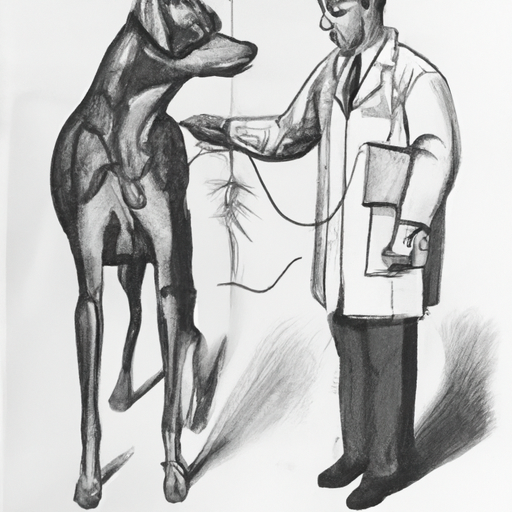Heartworm disease is a serious and potentially fatal disease in pets, particularly dogs. It’s caused by Dirofilaria immitis, a blood-borne parasite, that is often transmitted through the bite of an infected mosquito. But how does heartworms affect dogs? In this article, we will delve deeper into the subject, exploring everything from the initial transmission to the effects on your dog’s health.
- Table of Contents
- Heartworm Transmission
- The Life Cycle of Heartworms
- Effects on Dogs’ Health
- Symptoms of Heartworm Disease
- Diagnosis and Treatment
- Prevention is Better Than Cure
-
Frequently Asked Questions
-
Key Takeaways
- Heartworms are transmitted through mosquito bites.
- The worms live in the heart, lungs, and associated blood vessels of infected dogs.
- They can cause severe lung disease, heart failure, organ damage, and ultimately death.
- Regular testing and preventive measures can protect your dog from this deadly disease.
Heartworm Transmission
When a mosquito carrying heartworm larvae bites a dog, it transmits the larvae into the dog’s bloodstream. In about six months, these larvae mature into adult heartworms. These worms can live for 5 to 7 years in dogs, and a dog can have as many as 250 worms in its system.
The Life Cycle of Heartworms
The life cycle of heartworms begins with the adult female worm releasing her offspring, called microfilariae, into the dog’s bloodstream. When a mosquito bites an infected dog, it picks up these microfilariae, which mature into infective larvae in 10 to 14 days. Here is a more detailed explanation of the heartworm life cycle.
Effects on Dogs’ Health
Heartworms lodge in the heart, lungs, and surrounding blood vessels, and begin reproducing. They can cause severe lung disease, heart failure, and other organ damage. Over time, these effects can lead to a dog’s death.
At One Top Dog, we’ve gathered some useful information on how to keep your dog’s heart healthy.
Symptoms of Heartworm Disease
In the early stages, many dogs show few symptoms or no symptoms at all. The longer the infection persists, the more likely symptoms will develop. Advanced cases can cause congestive heart failure. Dogs often cough, become lethargic, lose their appetite, or have difficulty breathing. If your dog is displaying these symptoms, it’s crucial to get them checked by a veterinarian.
You can learn more about the subtle signs of heart disease in dogs here.
Diagnosis and Treatment
Heartworm disease is usually detected through blood tests. Other diagnostic procedures may include x-rays and ultrasound.
Treatment is typically an arsenic-based compound to kill adult heartworms. However, the treatment is not without its risks and can be expensive. The best approach, therefore, is prevention.
Prevention is Better Than Cure
Preventive measures include heartworm preventive medication and mosquito control. Regular testing for heartworms should also be a part of your dog’s routine care. For more advice on preventative care, visit our dog health tips section.
Frequently Asked Questions
Q: Can humans get heartworms from their dogs?
A: No, heartworms are species-specific. They only affect dogs, cats, and a few other animal species.
Q: Is heartworm disease painful for my dog?
A: Yes, heartworm disease can cause considerable discomfort and suffering for a dog, especially in advanced stages.
Q: Can heartworm be cured?
A: Yes, but treatment can be costly and is not without its risks. The best course of action is prevention.
Q: How often should my dog be tested for heartworms?
A: The American Heartworm Society recommends yearly testing for all dogs.
Heartworm disease is a serious, potentially fatal condition for dogs. But by understanding the disease and taking preventive measures, you can protect your furry friend from this dangerous threat. Your dog’s health is in your hands – take heartworms to heart.



